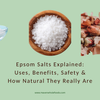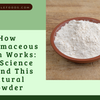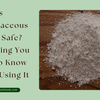Exploring Rye Flour Varieties: From Light to Dark
- by K V
Exploring Rye Flour Varieties
Ever wondered about that rye flour sitting next to your usual wheat flour at the supermarket? Rye flour is a fantastic ingredient with a rich history, dating all the way back to the Roman era.
It's a staple in Northern and Eastern European breads, giving them a unique texture and flavour compared to their wheat-only counterparts. But before you dive headfirst into rye baking, let's break down the grain itself and see how it differs from wheat.
Rye vs. Wheat:
One of the biggest differences between rye and wheat is their protein content. Wheat flour has a lot more "stretchy stuff" called gluten, which helps dough rise high and light. Rye flour, on the other hand, is lower in gluten.
This makes rye dough stickier and less likely to rise as much as wheat dough. That's the science behind why rye bread is denser and chewier – it simply has a different dough structure!
Top Rye Flour Varieties
- Light Rye Flour
This is the lightest coloured rye flour, and it's sometimes called white rye flour. It's made from just the inner, pale yellow part of the rye grain. Light rye flour has a mild, slightly nutty taste - not as strong as some of the darker rye flours.
You can use it similarly to regular white wheat flour, but keep in mind that it doesn't allow dough to rise quite as high since it has less gluten.
Light rye is great for mixing with regular wheat flour. Using some light rye along with wheat flour gives baked goods a gentle rye flavour and makes them stay fresher for longer. It works nicely for making rye sandwich loaves, soft pretzels, biscuits, and other pastries when you want just a hint of rye flavour.
The light colour and subtle nuttiness complement these types of baked goods beautifully without overpowering them.
- Medium Rye Flour
As the name suggests, medium rye flour has a darker colour than the light rye variety. It gets that deeper shade and more robust rye flavour by including some of the nutrient-packed outer bran layer from the rye grain.
Medium rye flour hits that nice sweet spot between the mild taste of light rye and the intense flavours of the really dark rye flours. It's the perfect choice when you want a distinctly rye flavour in your baked goods without it being overpowering.
This medium variety is super popular for making classic rye bread loaves like pumpernickel bread. The rye taste really shines through. But medium rye flour also works great for things like rye crackers, rye pancakes and waffles, and even some rye-based pastas. The stronger rye flavour stands up well in these kinds of recipes.
- Dark Rye Flour
This variety goes by a couple different names - dark rye flour or wholemeal rye flour. Either way, it's made using the entire rye grain kernel, including the outer bran layer, the germ, and the inner endosperm. Because you're using the whole rye kernel, dark rye flour packs in lots of fibre, vitamins, and minerals - it's the nutritional powerhouse of the rye flour family.
With its intense, slightly bitter rye taste and deep brown colour, dark rye flour really shines in super hearty, robust breads. It's absolutely essential for making traditional German-style whole grain rye loaves like vollkornbrot; German in origin and translates as 'whole grain bread'.
Made with a 100% rye sourdough starter, the bread contains dark rye flour and cracked whole rye grains. Soaked sunflower seeds only add to the delicious taste and texture of this complex loaf.
But dark rye flour isn't just for breads! You can use it to add amazing depth of rye flavour and an awesome chewy texture to things like rye muffins, rye pancakes and waffles, and even some rye-based beers and spirits. A little goes a long way in adding that big rye grain punch.
- Pumpernickel Flour
This is the fancy, specialised rye flour that gives pumpernickel bread its incredibly dark colour and rich, unique flavour. Pumpernickel flour is made from rye that has been cooked or dried at really high temperatures. That special process makes the flour intensely dark and develops an almost chocolate-like flavour profile.
Pumpernickel flour is the key ingredient you need to recreate that classic, extremely dense, and dark brown (almost black) pumpernickel bread at home. That iconic bread originated in Germany, and you can't make an authentic version without this speciality flour.
While you can use pumpernickel flour on its own to make ultra-dark, robustly flavoured rye breads, it's more commonly blended with other rye flours or wheat flour. Just a little pumpernickel flour added gives amazing depth of flavour and richness to rye breads, rolls, crackers and more.
No matter which variety you choose, rye flour lends a distinct and delicious flavour to baked goods.
Here are a few tips for baking with rye:
- Start by substituting just a portion of the wheat flour in your recipe with rye flour, as rye's lower gluten content can lead to dense, heavy results if used exclusively.
- Expect rye-based doughs to be stickier and more challenging to work with than wheat doughs. You may need to add a bit more liquid to achieve the right consistency.
- Rye breads often benefit from longer, cooler proving times to allow the dough to develop its full flavour and rise properly.
- For best results, store rye breads and baked goods in airtight containers or bags to prevent them from drying out too quickly.
With its robust, nutty flavour and chewy texture, rye flour is a delicious way to add variety and nutrients to your baking repertoire.
So why not pick up a bag or two on your next shopping trip and get ready to explore the wonderful world of rye breads, rolls, and more!
- Posted in:
- maven wholefoods
- Organic Farming
- Organic Flour
- Rye Flour
- Rye Flour Dark
- Rye Flour light
- Rye Flour Medium
- Wholemeal Rye flour





